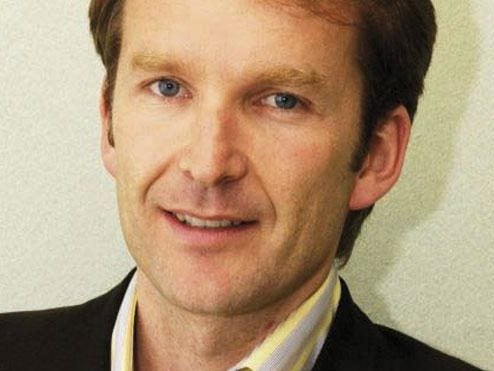
In the first of a new regular series, New Statesman editor Jason Cowley answers Press Gazette’s questions about life, work and the news industry in lockdown.
How are you keeping chipper during lockdown?
I’m doing what I do most of the time: reading, writing, editing, chatting about ideas with my editors and friends. I started running and cycling early in the lockdown, encouraged by the radiant spring weather and the closure of the local swimming pool, which I use at the weekend. All was going well until I strained my right calf while running one recent morning. I thought I’d snapped my Achilles at first. I had a Zoom consultancy with a physiotherapist friend who diagnosed a grade 1 strain and suggested ten days rest. Annoying.
What have been the main challenges and lessons of managing the team remotely and working from home?
The challenges have mostly been to do with technology – server freezes, unstable Wifi connections, and so on. I’ve missed making six quick decisions at editorial meetings in the office. But the team has responded superbly and we are communicating – via Zoom links and conference calls – perhaps better than ever.
The production team, in particular, has managed the new processes without complaint. It’s quite a feat producing a weekly print magazine remotely and they’ve pulled it off. I couldn’t be more grateful to them. And the website has seen some record traffic weeks.
What are the stories you have been most proud of during the pandemic?
I’m proud of all our coverage: its seriousness, depth, frequency, and quality. In addition to our political commentary from Stephen Bush and the team, we’ve had some stand-out pieces early in the crisis by Professor Lawrence Freedman and Harry Lambert investigating why the government was so poorly prepared despite pandemic planning. Harry’s piece got picked up by the papers.
Anoosh Chakelian, in collaboration with our new data team, conducted an early investigation into the crisis in care homes that exposed what was going on . We published a passionate, enraged piece by the TV producer Dominic Minghella (originally on his website) about the 11 days in March when he and many others had coronavirus and were unwittingly spreading it. It had one million unique readers on our site.
And a brilliant essay by the philosopher John Gray on why this crisis is a “turning point in history” went viral around the world, and is now one of our most read pieces ever. John is such a terrific writer and original thinker – a prophet for our troubled times.
Next week we’re publishing a remarkable 7,000 word piece on Jim Down, one of our leading intensive care consultants. He leads the team at University College Hospital and our writer followed him through one day in April as he battled to save lives as Covid-19 ripped through UK hospitals.
Which publication or news brand other than your own has most impressed you during the pandemic and why?
The New York Times. I am subscriber but was impressed that it made its coronavirus coverage free to read. It has terrific comment pages and a range of opinion and plurality of political positions. I especially like the commentators David Brooks and Ross Douthat. (Ross recently wrote a cover story for the New Statesman.) I admire its international coverage (though it doesn’t seem to understand the UK).
Most of the British newspapers are too partisan and their coverage is unduly influenced by their programmatic, top-down politics. However, the Sunday Times, under its new editor, Emma Tucker, has been good – notably its Insight investigation into the government’s failings, “the 38 days when Britain sleepwalked into disaster“. That piece was in the tradition of Harry Evans’s Sunday Times and is exactly what our leading Sunday newspaper should be using its resources to do – scrutinising and holding power to account irrespective of its own political bias.
How do you see the future of your publication and the news media in general in the short, medium and longer-term?
The news media is in trouble, especially if you don’t have a paywall and resilient subscription model. I was sorry to read about the job losses at Buzzfeed, Vice, Quartz and The Economist. The legacy brands – such as the Times – that are investing in journalism will emerge stronger from the crisis. Others, such as the Evening Standard, may never recover.
The crisis has encouraged us to accelerate our digital expansion and to innovate with new digital launches and newsletters. We have appointed a new data journalism team under the leadership of David Ottewell. We have also expanded our international coverage and brought in Jeremy Cliffe, formerly Charlemagne columnist and Brussels bureau chief at the Economist, as our international editor.
We will emerge stronger, I think, not least because we are part of a group that wants to invest in quality journalism and we champion fine writing and sceptical thinking. The future of the New Statesman should be as a UK print-digital hybrid in the style of the American magazine The Atlantic while still retaining a weekly print magazine (the Atlantic publishes only ten magazines a year).
We launched a paywall for the magazine in 2018 and it is working and we have been gaining paid-for subscriptions ever since.
Email pged@pressgazette.co.uk to point out mistakes, provide story tips or send in a letter for publication on our "Letters Page" blog
